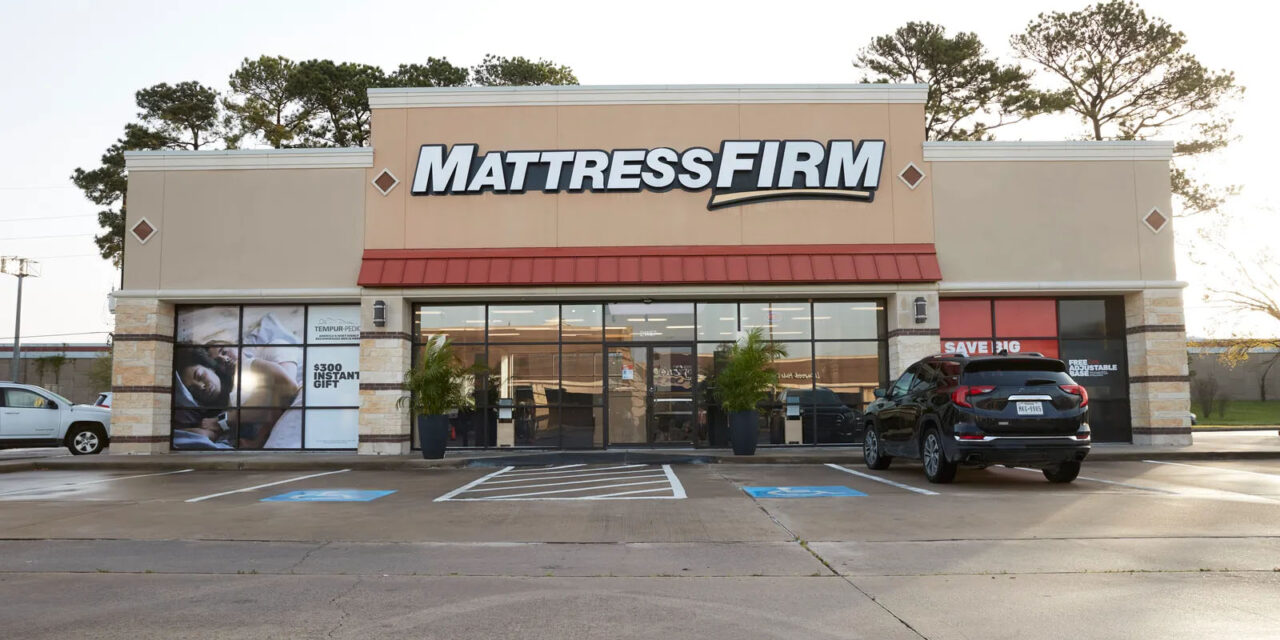A Mattress Firm storefront. Permission granted by Mattress Firm
Daphne Howland|Source: www.retaildive.com, July 2024
The mattress giant expressed confidence in its ability to prevail in court and close the deal later this year or early next.
Dive Brief:
- The Federal Trade Commission on Tuesday voted unanimously to block Tempur Sealy International’s takeover of Mattress Firm. About a year ago Tempur Sealy agreed to acquire the retailer for $4 billion.
- The merger of Tempur Sealy’s manufacturing and supply chain operations and Mattress Firm’s store fleet would foster “enormous power at multiple parts of the mattress supply chain” and enable the combined entity “to suppress competition and raise prices for mattresses for millions of consumers,” the FTC said.
- The commission also authorized a federal legal challenge. In a statement, Tempur Sealy expressed confidence “in the procompetitive rationale for this transaction,” and its ability to prevail in court quickly, “which would allow us to close the transaction in late 2024 or early 2025.”
Dive Insight:
As the FTC notes, Mattress Firm is by far the largest specialty retailer in the space in the U.S. Last year the chain was running 2,342 locations, while its second-largest rival, Mattress Warehouse, ran just 310, according to William Blair analysts Phillip Blee and Sabrina Baxamusa.
Given that scale, Mattress Firm offers an important sales channel. If controlled by Tempur Sealy, the retailer would be cut off to newer or independent brands — including Serta Simmons Bedding and Purple — looking to gain traction with consumers, the FTC said.
“Through emails, presentations, and other deal documents, Tempur Sealy has made it abundantly clear that its acquisition of Mattress Firm is intended to kneecap competitors and dominate the market,” Henry Liu, director of the FTC’s Bureau of Competition, said in a statement. “This deal isn’t about creating efficiencies; it’s about crippling the competition, which would raise prices on an essential good and could lead to layoffs for good paying American manufacturing jobs in nearly a dozen states.”
Allowing the merger would give Tempur Sealy brands an opportunity to dominate Mattress Firms’ floor space or provide store employees with special incentives, which “could result in higher mattress prices, decreased product quality and choice, or reduced innovation,” the FTC said.
The FTC is likely focused on Serta Simmons’ vulnerability, in part because of its bankruptcy last year, William Blair analysts said. The company also owns DTC brand Tuft & Needle.
“We believe the larger concern would be around preferential treatment of the Sealy and Stearns & Foster brands, which could more easily replace third-party brands since mattresses are more like commoditized products at the lower end of the price band,” William Blair analysts said. “It would be very difficult for third-party suppliers to recoup lost floor spots without incurring additional costs given the scale and reach of Mattress Firm compared to the remainder of the mattress retail industry, which is dominated my smaller, independent mom-and-pops.”
Tempur Sealy acknowledged regulators’ “efforts to understand the industry and the proposed transaction,” saying that it has worked closely with them and remained “open to appropriate commitments to address FTC concerns.” But ultimately “the FTC’s perspective does not reflect all the relevant facts and law,” the company said.
The company also compared its proposal with acquisitions it’s made in Europe. As with those, Mattress Firm would continue to sell multiple brands including from third-party manufacturers. Tempur Sealy is also “open to a divestiture of stores and supporting infrastructure,” per its statement.
Tempur Sealy said it would have further comment during a conference call scheduled for Monday at 8 a.m. Eastern Time.

